Ask an Attorney a Question for FREE!
Collision Coverage
Damage to your auto | page I
Collision Coverage (also known as Protection against Loss to the Auto) features:
- First Party Coverage
- No Fault based
- Deductible Applies
- No Limits on amount of coverage
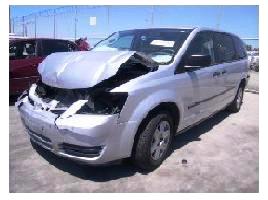
Collision Coverage protects your insured auto. This coverage is not fault based. Therefore, if you get in an accident, and your vehicle is damaged, your insurance carrier must fix your car once they determine coverage exists (usually the day you report the claim).
There is a deductible that applies to this (most common is $500) but I have seen deductibles as high as $1,500. The lower the deductible, the less you have to pay out of your own pocket at the time of fixing your car.
Equally, the smaller the deductible rate, the higher your monthly premium will be.
Your deductible should be at the level you feel comfortable paying if your car gets in an accident (if you have $500 on your savings account, then you should have a deductible for less than that amount).
There is no sense to have a deductible that is so high that it might be 50% of the value of the vehicle. For example, if you own a vehicle that is worth $3000, you should not pay for a deductible that is $1,500.
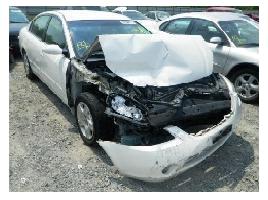
You want to read your policy closely, especially the definition of "your insured auto" under the Collision Coverage heading. You will see that most insurance policies will extend the definition of your “covered auto” to attached trailers.
Therefore, if you come around a corner and you hit your trailer against something, chances are that damages to that trailer are covered under the collision portion of the policy (just note that the contents of the trailer will not be cover, just the trailer itself).
The definition will also be extended to cars you are renting. Therefore, if you travel and get a rental car, then your policy will probably cover that vehicle (still subject to your deductible and the terms of your policy).
This is the reason why every rental car place will ask you for proof of Comprehensive and Collision Coverage. Some will ask for proof of full coverage insurance (something like that).
In addition, cars that you borrow will be covered (if you borrow them temporarily), but you will notice that those cars will only be covered if the owner of that car does not have insurance on it.
If the borrowed vehicle has insurance, then that insurance company will pay for the damages. Your insurance policy will act as secondary and will cover the excess.
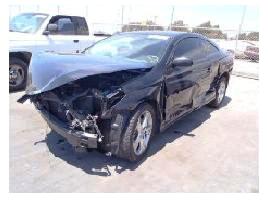
But what is a collision?
A collision is defined on the policy under the Collision Coverage. It is the actual impact of your vehicle against an object.
For example, if you are driving down the road and your vehicle hits a pothole, did you have a collision? Yes, your vehicle just collided against the ground. The same logic applies to a rollover accident.
There are exclusions to the Collision Coverage. Collisions with animals are not covered.
Therefore, if you hit a deer, this coverage will not protect the damages to your car. There are also restrictions to free falling objects. If a tree falls on top of your car, this will not be considered a collision.
Collision Coverage is meant for those accidents where there is no Act of God. An Act of God is defined on many policies as acts of nature (wind, hail, water, flooding, earth movement, etc.).
Exclusions also include falling objects or projectiles (the shopping cart that came and hit your door).
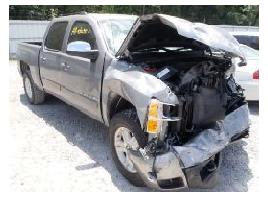
What is exactly covered under the Collision Coverage?
This coverage is designed to fix or replace your car and put you on the same position that you were just before the accident (to indemnify you).
Your insurance company will pay only actual cash value (ACV). This means that they will depreciate parts or the entire auto before paying.
Insurance policies also have “Reasonable and Necessary Clauses” written all over the Collision Coverage.
Reasonable and necessary clauses allow insurance companies to tell you that you have to put used parts in your car.
Yes, the theory is that since you had a used car and they only pay actual cash value (what you had), then they will put used parts back in (put you back in the position you were).
They will put OEM (Original Equipment Manufacturer) parts in your car. OEM parts are not parts made directly by the manufacture of your vehicle, but by a company that mirrors the construction of such parts.
The OEM definition in the automobile industry constitutes a federally-licensed entity required to warrant and/or guarantee their products, unlike the "aftermarket" which is not legally bound to a government-dictated level of liability.
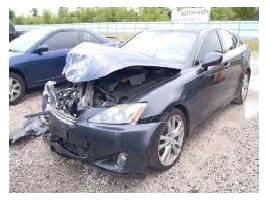
The debate on this point is heated. Insureds feel ripped off when they learned that their vehicle will be fixed with some lower quality parts.
Insurance companies and aftermarket parts manufactures will tell you that these parts are made to specifications and that they are just as good as the dealer parts.
Although this is hard to believe, there are several bodyshops and mechanics that have told me that this is true.
If you are in this situation, I recommend you inspect every part, and make sure that they are Japanese or American parts (they are safer), and you should stay away from any Chinese or Taiwanese parts.
If you cannot stand the thought of having lower grade parts installed to your vehicle, then you can pay for the difference between the dealer and the aftermarket parts.
Click below for an explanation insurance coverages and terms:
Automobile Liability Insurance or Liability Page 1
Automobile Liability Insurance or Liability Page 2
Automobile Medical Payments or Personal Injury Protection (PIP) Page 1
Automobile Medical Payments or Personal Injury Protection (PIP) Page 2
Collision Coverage (Protection Against Loss to the Auto) Page 1
Collision Coverage (Protection Against Loss to the Auto) Page 2
Comprehensive Coverage (Protection Against Loss to the Auto) Page 1
Comprehensive Coverage (Protection Against Loss to the Auto) Page 2
Under or Uninsured Motorist Property Damage (UMPD) Page 1
Under or Uninsured Motorist Property Damage (UMPD) Page 2
Under or Uninsured Motorist Bodily Injury (UMBI)
Rental Reimbursement or Loss of Use Coverage Page 1
Rental Reimbursement or Loss of Use Coverage Page 2
Restoration Coverage
Towing and/or Road Assistance Coverage (Emergency Packages)
|
For a Free Review of Your Case
Please Call (866) 878-2432 |


